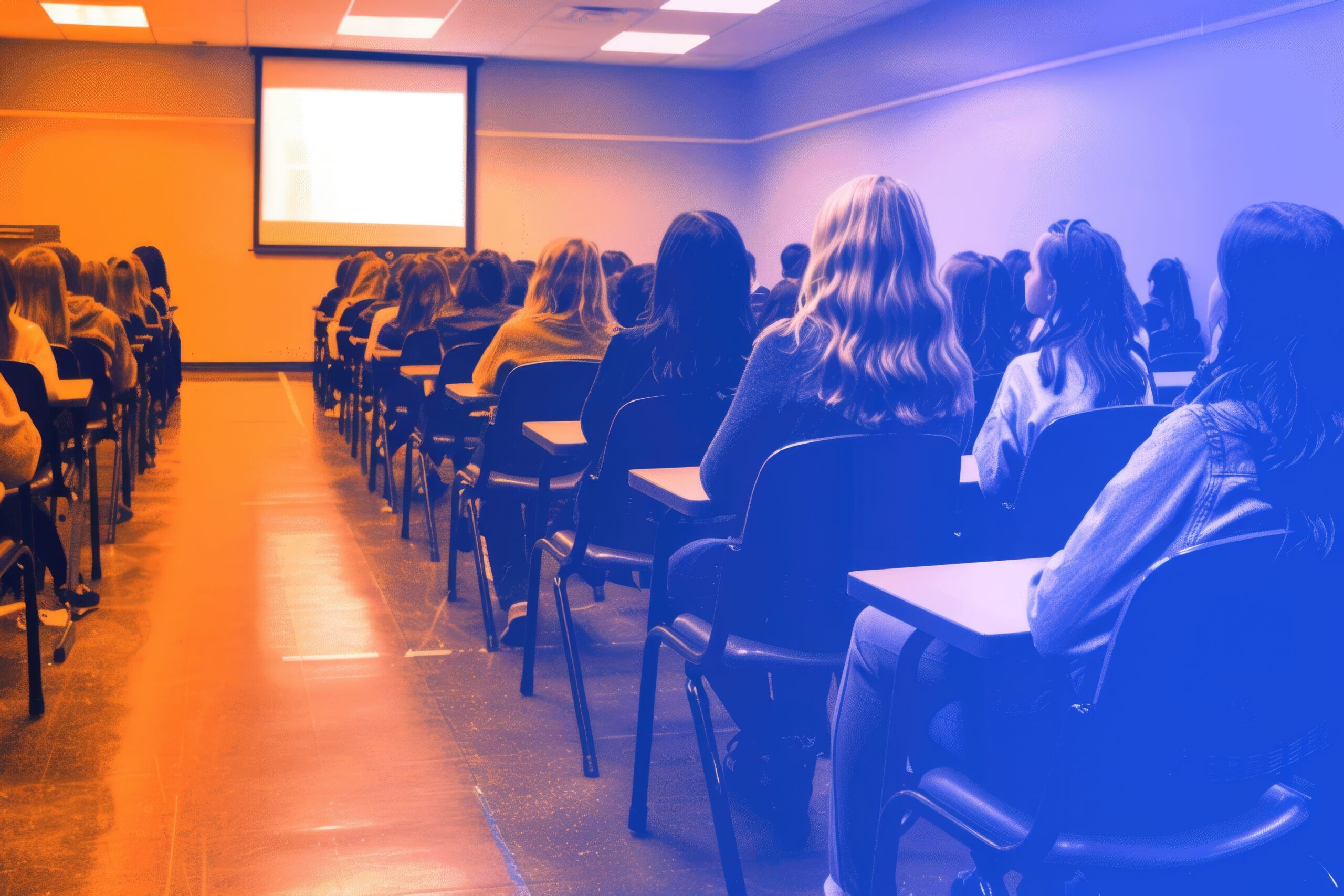As generative AI reshapes learning, face-to-face training is proving its renewed value—not through nostalgia, but by offering what tech can’t: emotional connection, trust, and shared experience. In this article, Richard Smith explores why F2F endures, how it’s evolving, and why it remains a vital tool in today’s learning landscape.
In a world increasingly shaped by digital innovation and generative AI, some might assume face-to-face (F2F) training is becoming obsolete, especially post-pandemic when all F2F activity was curtailed. F2F has evolved rather than disappeared and its transformation has reinforced the irreplaceable importance of delegate experience and human connection in learning environments.
This summarises the key observations in ‘The Role of Face-to- Face Training in a GenAI World’ free research report, sharing valuable insights and opinions from learning and development industry experts.
Rehumanising learning
While virtual platforms offer convenience and scalability, they often fall short in delivering the emotional engagement and trust-building that underpin deep, lasting learning. Human connection that is established through eye contact, body language, shared space, and informal conversation, remains a cornerstone of impactful training. As learning expert Nahdia Khan points out, emotional engagement, psychological safety, and trust are still best developed in person, in collaboration. These factors are vital when it comes to leadership, behavioural change education in particular.
Leadership experts and author Dr. Nigel Paine adds that “orthodox training”, a passive, slide-deck-heavy format, no longer serves today’s learners. Instead, experiential, problem-based learning that leverages the human element is where F2F training shines. The ability to read a room, adapt in real-time, and engage in meaningful dialogue with peers and facilitators simply can’t be replicated online.
The delegate experience: More than just the classroom
Today’s learners expect more than a training session, they want a memorable experience. This means that the moments outside the classroom are just as vital as those within. Informal conversations over coffee, team-building games, and shared meals contribute to stronger bonds and deeper understanding.
In my own experience I’ve noticed among L&D managers a growing emphasis on the entire delegate journey. Organisations are increasingly investing in contracted training spaces designed to support learning, wellbeing, and social interaction. These immersive environments foster community and connection, transforming training into a restorative, meaningful break from routine.
Kevin Mansell of Control-F underscores this point, explaining how purposeful learning spaces and hands-on instruction create an atmosphere where learners feel supported, engaged, and ready to absorb complex material. Control-F’s shift to a long-term, customised training environment exemplifies how physical space and attention to detail enhance the delegate experience, and the quality of outcomes.
Why in-person is still important
In a survey that we carried out, learning leaders overwhelmingly agreed that F2F training drives stronger engagement and richer discussions. One respondent summarised it best: “You can’t build rapport in the same way online as you can F2F.” Neuroscience backs this up as relational learning activates more areas of the brain, improving retention and long-term understanding.
Moreover, learning as part of a group creates a sense of belonging that motivates people to participate and return. Dr. Lynne Souter-Anderson, a psychotherapist, fellow of the National Counselling Society and founder of the Clay Therapy Community, highlights how enjoyment and emotional resonance are crucial in adult education. When learners feel seen, heard, and valued, learning becomes something they want to revisit, not just complete.
Designing for connection
The evolution of F2F training isn’t about resisting technology but about using it wisely. GenAI and other tools can enhance the F2F experience through pre-course personalisation, real-time engagement analytics, and post-session reinforcement. These digital enhancements should serve to support rather than replace the human experience. And vice versa, F2F complements digital when they are combined as appropriate interventions in a learning journey.
F2F training is now most powerful when it is strategically deployed. It’s best used for interpersonal skill-building, leadership development and other areas where empathy, trust, and collaboration are key. Delegates want meaningful, engaging, and enjoyable sessions that justify their time away from the desk—and done right, F2F delivers just that.
Selecting the best option
As the workplace continues to shift and hybrid work remains the norm, the role of F2F training has evolved into something even more valuable: a vehicle for deep human connection and holistic learning.
Rather than treating it as a relic of the past, organisations are reimagining F2F training as a powerful complement to digital delivery, one that prioritises delegate experience, fosters authentic relationships, and delivers transformational results. In a GenAI world, the most human aspects of learning may be our greatest advantage.
Richard Smith is Chief Commercial Officer at Wyboston Venue Management




